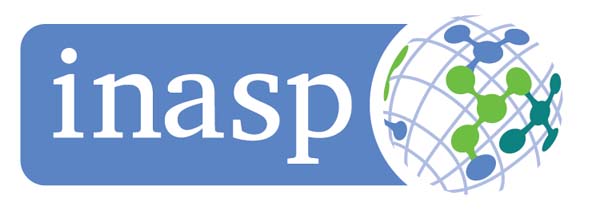Advances in Distributed Scheduling Algorithms: A Three-Layer Architecture Integrating Deep Reinforcement Learning and Energy Optimization (2023-2024)
DOI:
https://doi.org/10.29304/jqcsm.2025.17.11963Keywords:
Distributed Computing, Scheduling Algorithms, Energy Efficiency, Deep Reinforcement Learning, Cloud Computing, Performance OptimizationAbstract
This paper reviews the developments of recent distributed scheduling algorithms across cloud computing, energy systems, manufacturing, and quantum computing areas, and proposes a new three-layer architecture based on deep reinforcement learning and energy optimization strategies. Using a thorough reading of works from between 23 and early 2024, we illustrate major advancements in both energy-efficient scheduling and the integration of deep learning, with newer algorithms realizing up to 27.8% energy savings and up to 40% acceleration in the training processes of a distribute network. We present an energy-efficient architecture that is realized via containerized microservices on a Kubernetes orchestration engine, achieving 30% decreased energy consumption while attaining sub-50ms response times in the 99th percentile and resource utilization above 90%. The method that balances statistical validation with real world validation across 1000 node deployments leads to both theoretical contributions in algorithm designs and their practical implementations in production scenarios, with directions in quantum computing and better AI capabilities being the main draw of where to improve next.
Downloads
References
A. Pentelas, “Orchestrating Service Function Chains over Resource-Constrained Network Function Virtualization (NFV) Infrastructures,” 2023, Πανεπιστήμιο Μακεδονίας. Σχολή Επιστημών Πληροφορίας. Τμήμα Εφαρμοσμένης ….
S. Tang et al., “A survey on scheduling techniques in computing and network convergence,” IEEE Commun. Surv. Tutorials, 2023.
M. Crespo-Aguado, R. Lozano, F. Hernandez-Gobertti, N. Molner, and D. Gomez-Barquero, “Flexible Hyper-Distributed IoT–Edge–Cloud Platform for Real-Time Digital Twin Applications on 6G-Intended Testbeds for Logistics and Industry,” Futur. Internet, vol. 16, no. 11, p. 431, 2024.
K. Senjab, S. Abbas, N. Ahmed, and A. ur R. Khan, “A survey of Kubernetes scheduling algorithms,” J. Cloud Comput., vol. 12, no. 1, p. 87, 2023.
P. Banerjee et al., “MTD-DHJS: makespan-optimized task scheduling algorithm for cloud computing with dynamic computational time prediction,” IEEE Access, 2023.
D. S. Kumar, M. Premkumar, C. Kumar, and S. M. Muyeen, “Optimal scheduling algorithm for residential building distributed energy source systems using Levy flight and chaos-assisted artificial rabbits optimizer,” Energy Reports, vol. 9, pp. 5721–5740, 2023.
R. Li, W. Gong, L. Wang, C. Lu, and C. Dong, “Co-evolution with deep reinforcement learning for energy-aware distributed heterogeneous flexible job shop scheduling,” IEEE Trans. Syst. Man, Cybern. Syst., 2023.
Y. Yuan, T. Ding, X. Chang, W. Jia, and Y. Xue, “A distributed multi-objective optimization method for scheduling of integrated electricity and hydrogen systems,” Appl. Energy, vol. 355, p. 122287, 2024.
H. Qin et al., “Energy-efficient iterative greedy algorithm for the distributed hybrid flow shop scheduling with blocking constraints,” IEEE Trans. Emerg. Top. Comput. Intell., vol. 7, no. 5, pp. 1442–1457, 2023.
L. Zhang, S. Shi, X. Chu, W. Wang, B. Li, and C. Liu, “Dear: Accelerating distributed deep learning with fine-grained all-reduce pipelining,” in 2023 IEEE 43rd International Conference on Distributed Computing Systems (ICDCS), IEEE, 2023, pp. 142–153.
S. Wang, H. Zheng, X. Wen, and S. Fu, “Distributed high-performance computing methods for accelerating deep learning training,” J. Knowl. Learn. Sci. Technol. ISSN 2959-6386, vol. 3, no. 3, pp. 108–126, 2024.
E. Al-Masri, A. Souri, H. Mohamed, W. Yang, J. Olmsted, and O. Kotevska, “Energy-efficient cooperative resource allocation and task scheduling for Internet of Things environments,” Internet of Things, vol. 23, p. 100832, 2023.
G. P. Mattia and R. Beraldi, “P2PFaaS: A framework for FaaS peer-to-peer scheduling and load balancing in Fog and Edge computing,” SoftwareX, vol. 21, p. 101290, 2023.
M. Caleffi, M. Amoretti, D. Ferrari, J. Illiano, A. Manzalini, and A. S. Cacciapuoti, “Distributed quantum computing: a survey,” Comput. Networks, vol. 254, p. 110672, 2024.
F. Zhao, B. Zhu, and L. Wang, “An estimation of distribution algorithm-based hyper-heuristic for the distributed assembly mixed no-idle permutation flowshop scheduling problem,” IEEE Trans. Syst. Man, Cybern. Syst., vol. 53, no. 9, pp. 5626–5637, 2023.
X. Liu, K. Fan, X. Huang, J. Ge, Y. Liu, and H. Kang, “Recent advances in artificial intelligence boosting materials design for electrochemical energy storage,” Chem. Eng. J., p. 151625, 2024.
F. Eyvazov, T. E. Ali, F. I. Ali, and A. D. Zoltan, “Beyond Containers: Orchestrating Microservices with Minikube, Kubernetes, Docker, and Compose for Seamless Deployment and Scalability,” in 2024 11th International Conference on Reliability, Infocom Technologies and Optimization (Trends and Future Directions)(ICRITO), IEEE, 2024, pp. 1–6.
K. Y. Yap, H. H. Chin, and J. J. Klemeš, “Blockchain technology for distributed generation: A review of current development, challenges and future prospect,” Renew. Sustain. Energy Rev., vol. 175, p. 113170, 2023.
F. Liang, Z. Zhang, H. Lu, V. Leung, Y. Guo, and X. Hu, “Communication-Efficient Large-Scale Distributed Deep Learning: A Comprehensive Survey,” arXiv Prepr. arXiv2404.06114, 2024.
M. B. Abdelghany, A. Al-Durra, H. Zeineldin, and J. Hu, “Integration of cascaded coordinated rolling horizon control for output power smoothing in islanded wind–solar microgrid with multiple hydrogen storage tanks,” Energy, vol. 291, p. 130442, 2024.
Sultan, Nagham A., and Dhuha B. Abdullah. "Investigating scientific collaboration networks in Iraq using cloud computing and data mining." International Journal of Applied Science and Engineering 20.4 (2023): 1-9.
Rashid, Shaimaa, and Rawaa Qasha. "Real-time collection and archiving of related posts to cultural heritage on the cloud." INFORMATIK 2024. Gesellschaft für Informatik eV, 2024.
Rashid, Shaimaa, and Rawaa Qasha. "Cloud-Based Data Classification Framework for Cultural Heritage Conservation." INFORMATIK 2024. Gesellschaft für Informatik eV, 2024.
Sultan, Nawar A., and Rawaa Putros Qasha. "Big Data Framework for Monitoring Real-Time Vehicular Traffic Flow." 2023 International Conference on Engineering, Science and Advanced Technology (ICESAT). IEEE, 2023.
Al‐kateeb, Zeena N., and Dhuha Basheer Abdullah. "A smart architecture leveraging fog computing fusion and ensemble learning for prediction of gestational diabetes." Fusion Pract Appl 12.2 (2023): 70-87.
Downloads
Published
How to Cite
Issue
Section
License
Copyright (c) 2025 Ali Mohammed Ahmed , Manar Younis Kashmola

This work is licensed under a Creative Commons Attribution-NonCommercial-NoDerivatives 4.0 International License.













